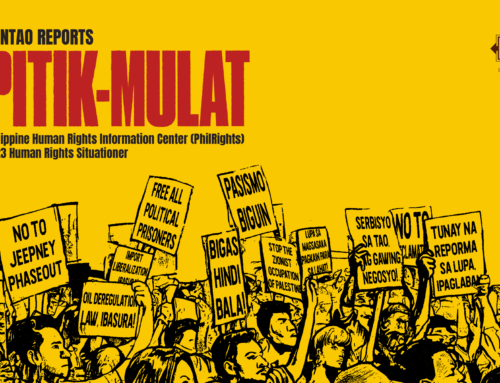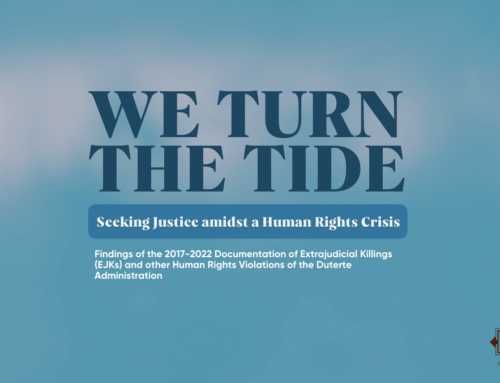(Nairobi) – The government of Mali should investigate allegations that Malian soldiers tortured seven suspected supporters of Islamist armed groups in Léré, near Timbuktu, Human Rights Watch said today.
The seven men, all of whom showed visible signs of torture, described to Human Rights Watch being beaten and kicked, burned, injected with a caustic substance, and threatened with death while in army custody between February 15 and March 4, 2013. One said he was subjected to simulated drowning akin to “waterboarding.”
“The use of torture by the very soldiers mandated to restore security in northern Mali will only make a difficult situation worse,” said Corinne Dufka, senior West Africa researcher at Human Rights Watch. “The Malian government should promptly and impartially investigate these and other allegations of abuse or face an increasingly unaccountable military and deepening communal tensions.”
All of the seven detainees were ethnic Tuareg men between the ages of 21 and 66 who said that soldiers had detained them in or near the animal market in Léré after they went there from nearby villages to sell their cows. Two were detained while hiding in a house near the animal market. All seven were taken to a house that appeared to be serving as an ad hoc military headquarters. The Malian army had retaken Léré in late January as part of a French-led offensive to recapture northern Mali from Islamist armed groups.
The torture and other ill-treatment of the men caused lasting injuries, Human Rights Watch said. One man went blind in one eye after being clubbed in the face with a gun butt, while another had gone partially deaf after being kicked repeatedly in the head. Two of the men described being beaten until unconscious, one of whom later vomited blood and bled from his nose. Another suffered a broken or dislocated shoulder after being hurled to the ground while bound, while another said he suffered at least one broken rib. Most were hogtied – their wrists and ankles tied tightly behind the back – for hours at a time, in some cases for over 12 hours. All had scars on their wrists from the tight cords and two had lost movement and feeling in one or both arms, suggesting possible nerve damage.
The military appeared to be torturing the men as punishment for suspected support for Islamist armed groups, Human Rights Watch said. While they were not formally interrogated while in military custody, the men said that on a few occasions there were informally questioned about alleged associations with armed groups, including while being mistreated. On March 5, the men were taken from Léré to Markala, 265 kilometers away, where they were photographed with Kalashnikov assault rifles, ammunition, motorcycles, and other alleged proof of their association with armed groups. The men denied any such association and said the arms and other items were not theirs.
All described being subjected to persistent death threats. The only language most of the men spoke was Tamashek, the Tuareg language, which the soldiers did not speak, thus the death threats were communicated through gestures. The soldiers would frequently run a finger across their neck and, on a few occasions, sharpen knives in front of the room in which the men were detained.
The detainees said that after they were transferred to the custody of the Malian gendarmerie on March 5, they were well-treated and had been receiving regular medical attention. They are undergoing further interrogation and have not had access to family members or legal counsel.
Human Rights Watch has previously documented numerous incidents in which Malian soldiers had detained without basis members of Tuareg, Arab, and Peuhl ethnic groups because of their alleged support of Islamist and Tuareg armed groups. Two of the Léré detainees told Human Rights Watch that they were aware of possible targeting by Malian soldiers, but believed they could safely go to the market because French soldiers were reportedly also in the town.
“It is in the interests of every government involved in Mali to ensure that all abuses cease and those responsible are appropriately punished,” Dufka said. “Doing nothing in the face of reports of torture should not be an option.”
A 31-year-old detainee told Human Rights Watch:
We had heard about the Malian soldiers doing bad to Tuaregs and know they suspect us, but what are we to do? We live in camps (campements) far from any towns and had no other choice but to sell our animals to survive. That day I felt confident both because I have proper identification papers and my brother in Timbuktu told me the French are always with the Malians…. That’s why I took the risk to come to Léré that day.
The abuses in Léré were documented during a Human Rights Watch research trip to Mali from March 11 to March 23. Other findings of human rights abuses will be made public in the coming weeks.
“Transferring the seven men tortured in Léré to the gendarmes appears to have eased their immediate plight, but not the concerns about the lawfulness of their detention,” Dufka said. “They should be released if there is no basis for holding them and compensated for their injuries.”
Accounts of Torture and Other Ill-Treatment
One of the detainees told Human Rights Watch that in the middle of the night he and another co-detainee, both of whom had been hogtied, were taken out of their cell by soldiers, who hurled them onto the ground “like we were bags of rice,” breaking or dislocating his shoulder. After the man was hit and threatened with death, another soldier ordered the soldiers to return the detainees to their room.
Two of the men told Human Rights Watch that on February 16 soldiers injected their wrists with an unknown caustic substance that over the next several hours produced blisters then progressively “ate through” their skin. The soldier used the same needle to inject both men. One man, 36, told Human Rights Watch:
After selling two cows for 315,000 CFA (US$620), I headed to the market to buy provisions before returning to my village. On the way a friend warned me the soldiers were arresting Tuaregs so I ran to hide in a friend’s house until they passed. But they saw me, dragged me out and immediately started kicking me with their boots and beating me with the butts of their rifles. While on the ground, one of them slammed my head with his gun, hitting my right eye. …The pain was so severe I passed out.
I came to while being dragged along the ground after my hands had been bound with my turban. The next day near sundown a soldier came in, took my arm and injected a substance. I thought it might have been for the pain. … I didn’t speak his language so couldn’t ask him. Then he injected my friend who was sharing the cell with me. It started blistering and by the next morning had eaten my skin. I felt as if I would die from the pain.… All I want is to return to my village.
A detainee whose hands were bound behind his back said soldiers placed wadded-up paper and set it alight on his back. A soldier held him down while he tried to shake off the burning paper. He told Human Rights Watch:
My hands were tied and they made me lie on the ground. I saw them twisting up paper which they put on my upper back and set on fire. …I tried to move left and right to shake it off as it burned my skin but they held me down.
Two other detainees said they were burned on their ears with a cigarette lighter.
One man, a 30-year-old driver, said that he was subjected to a mock execution similar to “waterboarding” that simulates drowning. He said:
They told me to crouch down, slammed my head hard against a wall, pulled it back then grabbed a bucket of water and poured it down my nose and into my mouth.… While doing this they asked me, “Tell us what job you were doing with them and why you had money on you.”
Four of the men described being robbed of the money from the sale of their cows. A 66-year-old trader told Human Rights Watch that he had sold 32 cows and the soldiers had taken 3,300,000 CFA ($6,520) from him while he was in custody.
“They beat me, and kicked me in my face and back
Human Rights Watch urged the Malian government to:
- Investigate and prosecute in accordance with international fair trial standards members of the security forces implicated in torture and other abuses in Léré, regardless of rank, and including those liable under command responsibility for their failure to prevent or prosecute these crimes.
- Accelerate redeployment of gendarmes, the police and Justice Ministry personnel to towns and villages in northern Mali, particularly those in which there are ongoing military operations, notably in and around the towns of Gossi, Gourma-Rharous, and Bourem.
- Ensure that everyone taken into custody during military operations is treated humanely, is promptly brought before a judicial authority to ensure the legality of their detention, and is able to contact their families.
- Establish a 24-hour telephone hotline, staffed by relevant Malian authorities and personnel from the African-led International Support Mission to Mali (AFISMA) for victims and witnesses to report violations, including by members of the state security forces.
Powered By WizardRSS.com | Full Text RSS Feed | Amazon Plugin WordPress | Android Forums | WordPress Tutorials







